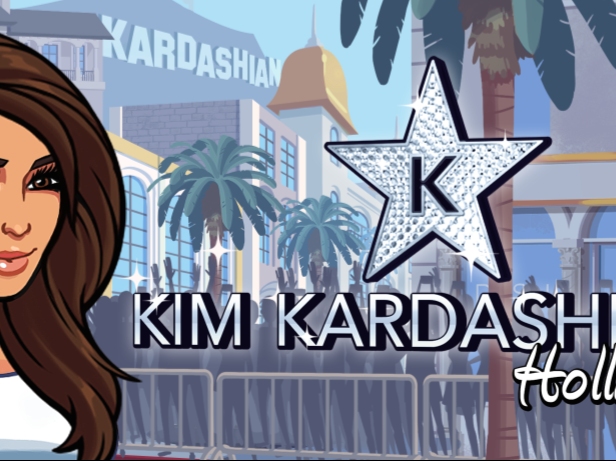Category
Marketing & Publishing
#Marketing & Publishing
16 Reasons Why Players Are Leaving Your Game
Players leave games. According to Marc Robinson’s 2013 GDC talk, “On average, less than 40% of players return to a free-to-play game after just one session.” [bctt tweet=”On average, less than 40% of players return to a free-to-play game after just one session!”] And as you know, our first duty as professional game designers is to create compelling experiences. We make games for the players to enjoy and play! If they leave our games too fast and too often, we have failed. Thinking of the reasons why players are leaving your game is a great opportunity to put yourself in their shoes. Not only that, your financial success largely depends on the size and fidelity of your audience. In particular if you are monetizing your game with in-app purchases. The data science team here at GameAnalytics recently unveiled the results...
#Marketing & Publishing
A new approach to marketing mobile games
Mobile gaming is a fiercely competitive, fast changing field. Developers are under constant pressure to make games better. Meanwhile, advertising costs are climbing, as industry leaders like King Digital (maker of ‘Candy Crush’) buy up much of the available ad inventory via Facebook and Twitter. Start-up ‘Seriously’ is taking a more creative marketing approach. Founded by two executives who previously worked at Rovio (maker of ‘Angry Birds’), the company successfully launched its first game ‘Best Fiends,’ on iOS in October. To get the word out about the game’s latest update on iOS (and its launch on Google Play), Seriously is teaming up with YouTube mega-star, PewDiePie. Here’s our Q&A with Co-Founder/CEO Andrew Stalbow: How would you describe Seriously’s strategy? We’ve seen an enormous audience shift, from traditional media to mobile devices (tablets, phones, etc). We believe the next generation of...
#Live Ops
Create your Push Notification Strategy
Earlier, I covered why it’s important to send good push notifications to your users and how to do it. Now you know how to craft valuable messages for gamers, it’s time to take a step forward and learn about how important the underlying notification strategy really is. Maybe you’re wondering: Why bother with push notifications? The answer is threefold. Having a push messaging strategy helps: to make the game experience more fun, to add another element to the game analysis, and to help you monetize your game Anyone can implement a winning strategy for push messaging. It just takes knowledge of your business and time to experience. Following, I’ll lead you along a ten step journey that will empower your video game communication strategy. 1- Design for Mobile from the Start Mobile design is a changing environment, constantly adapting new...
#Live Ops
Best Practices for Push Notifications in Mobile Games
Editor’s note: this is a guest post from David Xicota, former Co-Founder of Gamedonia, and current Studio Director of GSN Games. You can reach him on Twitter @davidxicota So, What’s the Right Way to Send Push Notifications? Sending messages via push has become a business standard in mobile games. “Hey! Your pets miss you.” To which I reply: “I don’t really care, don’t distract me with this messages again!” *push notifications=switched off* This kind of messaging can be annoying most of the time, but it doesn’t have to be like this. There are proper ways to send the kind of messages players are craving for. Now, do you know how to do it the right way? It’s way easier than you probably think. The techniques I’ll share are based on common sense. Ultimately, what you have to be able to...
#Marketing & Publishing
How Kim Kardashian: Hollywood Made the A-List
Unless you’ve been living under a rock for the past six months, you’re undoubtedly familiar with the phenomenon that is Glu Mobile’s Kim Kardashian: Hollywood (iOS / Android). Even if you haven’t played the game yourself, you’ve almost certainly entered its orbit. It inspired intellectual criticism that foreshadowed GamerGate! It generated discussion about the value of intellectual property in an industry increasingly sensitive to cost-effective user acquisition! It’s one of the biggest game releases of the year by any measure! It’s a franchise! We’re not here to talk about any of that. We’re here to dissect Kim Kardashian (the game, not the person!) and understand its performance. Given all the hype, you’d be forgiven for assuming the game does something magical to retain and monetize users. In fact, there is a lot of magic here, but it’s not the kind...
#Marketing & Publishing
Mid-Core Success Part 3: Social
In part three of his Mid-Core Success series, Michail Katkoff talks about true social mechanics, the kind that add to the gameplay, improve overall player experience and make the game feel more alive.
#Marketing & Publishing
Attribution on Mobile is Fundamentally Different
Jennifer Wong, Director of Marketing at HasOffers, shares an educational article on fundamental differences between web and mobile campaign attributions.
#Ads & Monetization
Getting and keeping players in the game store
While most players will definitely check your in-game store out of sheer curiosity, it's a true art to keep them there. An art in which Yaniv Nizan is ready to train you.
#Marketing & Publishing
Fun Facts about World of Warcraft Character Names
Anders Drachen reports from one of those rare events where a piece of analytics work was done purely to satisfy the curiosity of those involved, but ended up revealing surprising patterns about how we as players name our characters.
#Marketing & Publishing
An Indie Perspective: Launching a F2P game
Tim Wicksteed, an indie developer from Bristol, shares how GameAnalytics helped him assess the effectiveness of the F2P implementation for his first commercial title, Ionage.
#Marketing & Publishing
The Economics Of Mobile Game Publishing
Our latest guest post brings a new face to the GameAnalytics blog. Eric Seufert is a quantitative marketer with a specific interest in freemium analytics and product design. He is currently writing a book called Freemium Economics, which will be published by Morgan Kaufmann in late 2013. He also blogs frequently at Ufert.se, so feel free to pay him a visit.










